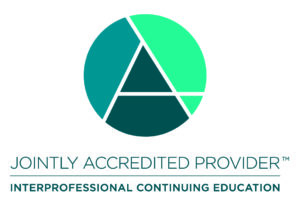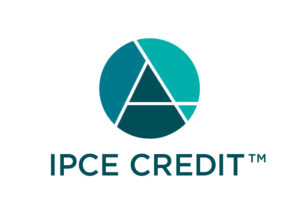Praxis Continuing Education & Training
Empowering Parents With ACT
Lisa Coyne, PhD and Evelyn R. Gould, PhD, BCBA-D, LABA
16 CE credits available
Please read the complete course information below prior to registering.
Target Audience:
This course is for mental health and behavioral professionals with some background knowledge in acceptance and commitment therapy. This includes counselors, psychologists, substance abuse counselors, social workers, behavior analysts, physicians, and nurses. It is not a foundational course so some training or practical experience in ACT is expected.
Schedule: (16 hours total)
1. Parenting in Context – How to take a functional contextual perspective on raising children; What a “successful” parenting context looks like; How ACT can support more effective parenting across development; A review of the hexaflex and how to see the flexibility processes as skills you can shape in caregivers; How to establish task agreement and a successful therapeutic alliance (105 minutes)
2. Psychological Inflexibility – How caregivers get caught in experiential avoidance and aversive control; The role of verbal rules in inflexible parenting; How parents’ psychological flexibility impacts their children; Why trial-and-error learning is important for children as well as caregivers; The concepts of workability and tracking; How to recognize inflexibility pitfalls for clinicians (116 minutes)
3. Mindfulness and Acceptance Strategies – How developing broad, purposeful, flexible attention helps parents create space to choose their reactions and be more contextually sensitive; How to shape present-moment awareness, defusion, and acceptance skills in caregivers; How to integrate mindfulness and acceptance skills with other evidence-based interventions; Strategies for cueing clinicians’ broad, purposeful attention in interactions with caregivers (132 minutes)
4. Commitment and Behavior Change Strategies – How values help parents find direction and perseverance; How to shape valuing and committed action skills in caregivers; How to troubleshoot common challenges that arise when working on values with caregivers; How to integrate valuing and committed action skills with other evidence-based interventions; How to reconnect with values as a clinician and get back on track when you’ve left your chosen path (112 minutes)
5. Perspective-Taking Strategies – The connection between self-as-context and perspective taking; Why an inflexible perspective gets parents stuck; How to help parents see their own behavior differently using perspective-taking; How to help parents flex their stories and view of their children; How to integrate perspective-taking skills with other evidence-based interventions; How clinicians can use perspective-taking to notice their own behavior (90 minutes)
6. Coercive Cycles – What are coercive cycles from a contextual behavioral perspective; The role private events and experiential avoidance can play in caregivers’ actions; The type of parenting style and parent-child interactions we want to see more of; How to help parents break inflexible patterns using preventative and reactive strategies; The role of self-coercion and how you can undermine it in your work with parents (110 minutes)
7. Parents of Autistic Children – The importance of acknowledging the chronic stressors parents face and how to help them expand their life around their struggles; How to ensure a clinician’s approach is sensitive to the context at hand and meets caregivers where they are; How to collaborate with multiple caregivers and service providers who may be involved with the families you work with; Considerations for clinicians working with children with chronic health problems or physical/developmental disabilities (110 minutes)
8. Self-Compassion – How to define self-compassion as a type of perspective-taking and caregiving; How to shape self-compassion in caregivers and create a context to help them practice it; How to promote values-based limit setting; How to practice self-compassion as a clinician (110 minutes)
9. Bonus – How to apply ACT in family sessions; Tips for how to address challenges commonly encountered by clinicians (80 minutes)
Overall Objectives:
At the conclusion of this course, participants will be able to:
1. Use a contextual behavioral perspective to conceptualize parenting issues
2. Describe how psychological flexibility contributes to contextually sensitive parenting practices and increased parent treatment engagement
3. Identify ways to develop an effective working alliance with caregivers
4. Describe how to establish ACT-consistent task agreement and treatment goals that support caregivers’ success
5. Discuss how to help caregivers track the workability of their parenting practices and evaluate their outcomes in context
6. Implement strategies for shaping caregivers’ psychological flexibility including present-moment awareness, defusion, and acceptance-based interventions
7. Use strategies for building caregivers’ psychological flexibility including valuing and committed action interventions
8. Implement strategies for supporting perspective-taking skills in caregivers
9. Identify common issues when implementing ACT strategies with caregivers and provide solutions
10. Integrate ACT with other evidence-based behavioral parent interventions
11. Identify coercive family cycles and establish more positive parent-child interactions from an ACT perspective
12. Use the ACT perspective and strategies to support parents of autistic children
13. Describe ways to help caregivers practice self-compassion to support persistence and resilience
14. Implement strategies to strengthen the psychological flexibility of the clinician in order to more effectively model and shape flexibility in caregivers
Grievance Procedures for CE Activities
Should a participant in the course be unsatisfied with the course, the participant should immediately contact our customer support team to file a grievance. Within five days, a customer support team member will contact the participant by email and/or phone and attempt to resolve the issue.
We will investigate and assess the issue from the perspective of the participant and every effort will be made to resolve the issue. If the issue is not resolved to the satisfaction of the participant, the participant will be offered a refund per the Refund and Cancellation Policy guidelines.
To file a grievance, please contact us at courses@praxiscet.com.
ADA Accommodations
To request accommodations for disabilities, please contact Praxis Continuing Education at courses@praxiscet.com.
Contact Information:
The Praxis team can be contacted at courses@praxiscet.com
Praxis Continuing Education
5674 Shattuck Avenue
Oakland, CA 94609 USA
CE Information:
This non-live online course is sponsored by Praxis Continuing Education and Training and is approved for 16 CE Hours. Praxis CET maintains responsibility for the program with the CE approvals outlined below:

Joint Accreditation: In support of improving patient care, Praxis Continuing Education and Training, Inc. is jointly accredited by the Accreditation Council for Continuing Medical Education (ACCME), the Accreditation Council for Pharmacy Education (ACPE), and the American Nurses Credentialing Center (ANCC), to provide continuing education for the healthcare team.

IPCE: This activity was planned by and for the healthcare team, and learners will receive 16 Interprofessional Continuing Education (IPCE) credit for learning and change.
Nursing: Praxis Continuing Education and Training, Inc. designates this activity for a maximum of 16 ANCC contact hours.
Physicians: Praxis Continuing Education and Training, Inc. designates this online enduring material activity for a maximum of 16 AMA PRA Category 1 Credits™. Physicians should claim only the credit commensurate with the extent of their participation in the activity.

Psychologists: Continuing Education (CE) credits for psychologists are provided through the co-sponsorship of the American Psychological Association (APA) Office of Continuing Education in Psychology (CEP). The APA CEP Office maintains responsibility for the content of the programs.
Social Workers: As a Jointly Accredited Organization, Praxis Continuing Education and Training, Inc. is approved to offer social work continuing education by the Association of Social Work Boards (ASWB) Approved Continuing Education (ACE) program. Organizations, not individual courses, are approved under this program. State and provincial regulatory boards have the final authority to determine whether an individual course may be accepted for continuing education credit. Praxis Continuing Education and Training, Inc. maintains responsibility for this course. Social workers completing this course receive 16 clinical continuing education credits.
Drug and Alcohol Counselors: This course has been approved by Praxis Continuing Education and Training, Inc. as a NAADAC Approved Education Provider, for 16 CE hours. NAADAC Provider #165310, Praxis Continuing Education and Training, Inc. is responsible for all aspects of its programming.

National Counselors: Praxis Continuing Education and Training, Inc. has been approved by NBCC as an Approved Continuing Education Provider, ACEP No. 6759. Programs that do not qualify for NBCC credit are clearly identified. Praxis Continuing Education and Training, Inc. is solely responsible for all aspects of the programs.
Behavior Analysts: Praxis CET is an approved BACB ACE Provider # OP-17-2718.
NY Counselors: Praxis Continuing Education and Training, Inc. is recognized by the New York State Education Department's State Board for Mental Health Practitioners as an approved provider of continuing education for licensed mental health counselors #MHC-0198.
NY Social Workers: Praxis Continuing Education and Training, Inc. is recognized by the New York State Education Department's State Board for Social Work as an approved provider of continuing education for licensed social workers #SW-0467.
NY Psychologists: Praxis Continuing Education and Training, Inc. is recognized by the New York State Education Department's State Board for Psychology as an approved provider of continuing education for licensed psychologists #PSY-0002.
NOTE: Many state boards accept offerings accredited by national or other state organizations. If your state is not listed, please check with your professional licensing board to determine whether the accreditations listed are accepted.
CE Course Launch Date: 12/02/2022
Expiration Date/Next scheduled review date: 12/02/2025
Disclosure of Relevant Financial Relationships
Praxis Continuing Education and Training is responsible for the content, quality, and scientific integrity of all CE activities certified for credit. When an educational activity is offered for medical (CME), Nursing (ANCC), and/or Psychology (APA) continuing education credit, participants must be informed as to the source, amount, nature, and disposition of any funding used to support the activity, whether in the form of educational grants, cash contributions, or in-kind contributions. Individuals in a position to influence course content must also disclose whether they have one or more relevant financial relationships with ineligible companies.
We define ineligible companies as those whose primary business is producing, marketing, selling, re-selling, or distributing healthcare products used by or on patients. There is no minimum financial threshold; individuals must disclose all financial relationships, regardless of the amount, with ineligible companies. We ask that discloses are made regardless of whether the individual views the financial relationships as relevant to the education. For more information on the Standards for Integrity and Independence in Accredited Continuing Education, please visit accme.org/standards.
All those in a position to control the content of an education activity are asked to disclose any relevant financial relationships they have with any ineligible companies.
There is no commercial support for this activity.
None of the other planners or presenters for this educational activity have relevant financial relationship(s) to disclose with ineligible companies whose primary business is producing, marketing, selling, re-selling, or distributing healthcare products used by or on patients.
How to Obtain Your CE Certificate:
After completing the course, please follow these steps to access your course evaluation, post-test (when applicable), and CE certificate. To receive credit, you must complete the course in full, pass the post-test with an average score of 80% or higher, and complete the course evaluation. No partial credit will be awarded. Please read through all of the instructions below before proceeding.
- Once you have completed all the modules and have taken the post-test for each module, go to the “Evaluation” tab on the course menu.
- If you have passed the post-tests with a cumulative average score of 80% or higher, the course feedback evaluation will be made available to you on the Evaluation page. You will be allowed to retake each post-test only once if you do not pass with an 80% or higher average.
- After submitting the feedback evaluation, a button will appear that will allow you to download your certificate.
We encourage members to submit the feedback evaluation within 6 months of course completion to earn their CE certificate.
Technical Requirements:
In order to complete this course, attendees will need:
- A computer with a monitor, keyboard, and a mouse or a mobile device/tablet
- Speakers/headphones: either built‐in to your computer/device or external (plugged into your computer)
- An internet connection, either wired or wireless. A minimum connection speed of 3 megabits is required to stream clear, standard definition video.
- The course is supported on most up-to-date internet browsers (Google Chrome, Safari, Firefox, Microsoft Edge, Brave, etc.)
- A PDF viewer such as Adobe Acrobat Reader
- An email address
- [Optional] A printer or access to a printer (to print any of the PDFs, if desired)
- [Optional] A Facebook account for access to the ACT for Anxiety Disorders community group
References:
1) Andrews, M. L., Garcia, Y. A., Catagnus, R. M., & Gould, E. R. (2021). Effects of acceptance and commitment training plus behavior parent training on parental implementation of autism treatment. The Psychological Record, 1–17.
2) Brassell, A. A., Rosenberg, E., Parent, J., Rough, J. N., Fondacaro, K., & Seehuus, M. (2016). Parent's psychological flexibility: Associations with parenting and child psychosocial well-being. Journal of Contextual Behavioral Science, 5(2), 111–120.
3) Fonseca, A., Moreira, H., & Canavarro, M. C. (2020). Uncovering the links between parenting stress and parenting styles: The role of psychological flexibility within parenting and global psychological flexibility. Journal of Contextual Behavioral Science, 18, 59–67.